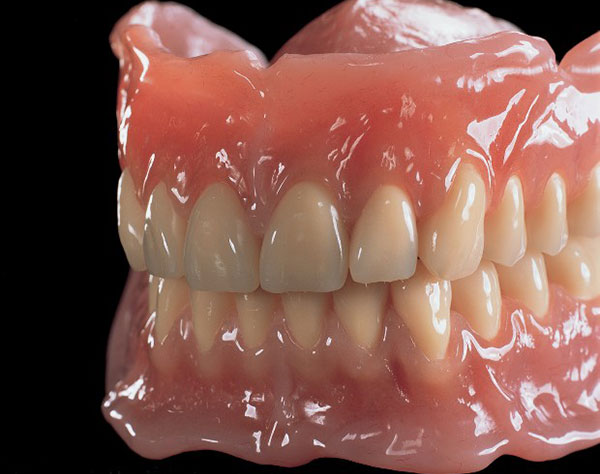
Complete Dentures
Complete dentures are remarkable oral prosthetic devices designed to replace an entire arch of missing teeth. When expertly crafted, these removable appliances can not only restore the ideal length between the nose and chin but also plump up facial tissues that would typically be supported by natural teeth. The transformative effect on a person’s lips, cheeks, profile, and smile can be nothing short of dramatic, imparting a more youthful and vibrant appearance.
Exploring Different Types of Complete Dentures
Acrylic Complete Dentures
As the name suggests, these dentures are crafted from a plastic material known as acrylic. This malleable material is well-suited for dentures as they may require occasional adjustments over time. Acrylic dentures, whether complete or partial, are the most common and affordable type of dentures available.
Ivocap Complete Dentures
Ivocap complete dentures offer an improved fit and reduce the need for adhesives. These dentures boast a non-porous surface, significantly reducing plaque adhesion, staining, and bad odors. In addition, Ivocap dentures are more durable and less prone to breakage, ensuring longevity and reliability.
The Advantages of Dentures
Complete dentures offer an array of benefits that go beyond simply filling the gaps left by missing teeth. Some of the advantages include:
- Improved eating function: Dentures restore the ability to chew food effectively, promoting better digestion and overall health.
- Enhanced support for the lips and cheeks: Dentures can counteract the sagging appearance that often accompanies tooth loss, providing a more youthful and appealing facial structure.
- Improved speech: With missing teeth replaced, speech impediments caused by gaps are alleviated, leading to clearer and more confident communication.
- Boosted self-esteem: Complete dentures give individuals the confidence to smile freely and interact with others without feeling self-conscious about their teeth.
The Disadvantages of Dentures
While dentures offer numerous advantages, it’s essential to consider some potential challenges:
- Initial adjustment period: Wearing dentures for the first time may lead to an overproduction of saliva. However, with time, the patient’s mouth typically adapts, and the issue resolves.
- Sore spots: New dentures may cause sore spots in some areas of the mouth. Thankfully, these are usually temporary and can be easily treated and adjusted during regular denture check-ups.
The Complete Denture Procedure
The process of obtaining full dentures generally involves three to four appointments, ensuring a customized and comfortable fit:
- Material selection and impressions: The dentist will determine the most suitable material for the patient and take impressions of the upper and lower jaw. Additionally, a bite registration and photographs are taken to guide the crafting process.
- Trial fittings: Several trial fittings are conducted using a wax trial denture, allowing the dentist to assess the fit, appearance, and functionality. Necessary adjustments are made during this stage.
- Final installation: Once the final denture is processed, it is installed in the patient’s mouth. Any further adjustments are made as required during follow-up visits to ensure a perfect fit and optimal comfort.
In conclusion, complete dentures are an excellent solution for individuals with missing teeth, offering a plethora of benefits that go beyond aesthetic improvements. By working closely with their dentist throughout the denture procedure, patients can reclaim their smiles and embrace newfound confidence in their daily lives. Remember, regular dental check-ups and diligent denture care are essential for maintaining long-lasting results and oral health.





